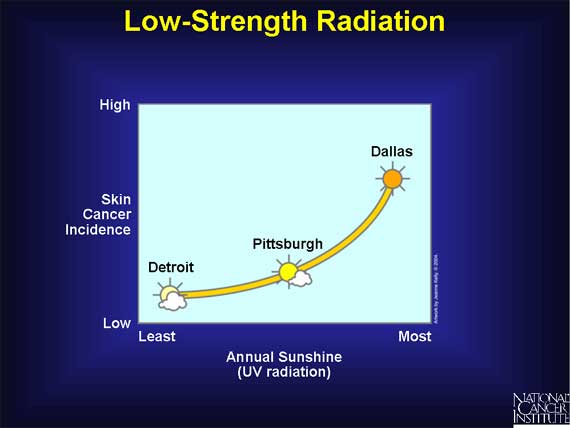|
Some atoms give off radiation, which is energy that travels through space. Prolonged or repeated exposure to certain types of radiation can cause cancer. Cancer caused by the sun's ultraviolet radiation is most common in people who spend long hours in strong sunlight. Ultraviolet radiation from sunlight is a low-strength type of radiation. Effective ways to protect against ultraviolet radiation and to prevent skin cancer are to avoid going into strong, direct sunlight and to wear protective clothing. Sunscreen lotions reduce the risk of some forms of skin cancers.

< Previous | Index | Next Slide > |